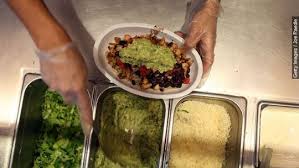Food Safety Criminal Prosecutions: When Compliance is a Matter of Life and Death
 Over the last ten to twenty years, we have witnessed the expansion of federal criminal prosecution of health and safety matters. Environmental and food and drug regulatory enforcement has been supplemented by aggressive criminal enforcement.
Over the last ten to twenty years, we have witnessed the expansion of federal criminal prosecution of health and safety matters. Environmental and food and drug regulatory enforcement has been supplemented by aggressive criminal enforcement.
In the last few years, we have seen some landmark criminal cases involving companies and executives for food safety violations. Compliance programs in these high-risk industries can literally be a matter of life and death. Judges are handing out tough criminal sentences when warranted.
Each week we hear about the outbreak of a new foodborne illness. Weeks after that, we then usually hear about a criminal investigation against the company and sometimes individual executives.
Criminal prosecutors are reinvigorating criminal enforcement of the Food, Drug and Cosmetics Act, and hanging their hats on the prohibition against introducing adulterated food in interstate commerce. An intentional or knowing violation of this prohibition is a felony criminal offense.
The most notorious criminal case in years was the criminal case against Peanut Corporation of America for distributing peanut butter that contained salmonella. Approximately 30,000 individuals became ill and none people died from the contaminated peanut butter.
Five people were convicted, including the CEO and his brother, and sentenced to 28 and 20 years in prison, respectively. The government proved at trial that the CEO and his brother knew the peanut butter was contaminated and nonetheless ordered the peanut butter to be distributed.
Criminal investigations have been launched against Chipolte and Blue Bell for sale of tainted food. It is reasonable to expect that DOJ prosecutors will seek to identify individuals responsible for the outbreaks and seek criminal charges.
DOJ has been racking up a number of individuals for criminal prosecution on food safety issues. For example, in 2012, two brothers were prosecuted for distributing listeria-infect cantaloupe in Colorado. They plead guilty and received sentences of five year probation.
In 2013, a father and son were charged distributing eggs with salmonella, resulting in the recall of half a billion eggs and the sickening of at least 60,000 people. Both father and son were sentenced to 3 months in jail and ordered to pay fines.
ConAgra plead guilty to selling peanut butter tainted with salmonella and paid a fine of $11 million.
As new food safety contaminations are reported in the press, criminal prosecutions are a real and significant threat. Public health officials and food scientists are much more familiar with outbreak issues, and pushing for criminal prosecutions of executives who are arguably responsible for these serious outbreaks.
The issuance o the Yates memorandum, coupled with DOJ’s willingness to use the Responsible Corporate Officer Doctrine authorizes DOJ to prosecute individuals who lacked a knowing or even reckless intent to violate the law, raises the stakes even higher.
Food manufacturing and distribution companies have to redouble their compliance efforts. Food safety demands that companies review and assess relevant risks, increase auditing and monitoring, and ensure that they meet best practices. Companies that ignore these risks are facing serious prosecution possibilities.
 One of the most significant risks for food manufacturers is management of their supply chains. It is not a legitimate defense to argue that a supplier provided a manufacturer with tainted food products since the manufacturer has diligence and quality assessment obligations to ensure the safety of ingredients and supplies needed to manufacture food.
One of the most significant risks for food manufacturers is management of their supply chains. It is not a legitimate defense to argue that a supplier provided a manufacturer with tainted food products since the manufacturer has diligence and quality assessment obligations to ensure the safety of ingredients and supplies needed to manufacture food.
Finally, every food company needs to have a response and remediation plan. Companies that ignore a claim of adulteration or illness are certain to face greater criminal risks – on the other hand when a company responds to reports of illness and investigates the claims quickly, the company can then respond and remediate a dangerous situation.















